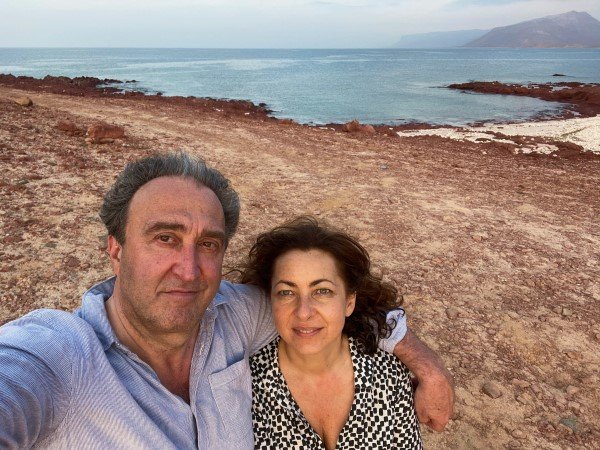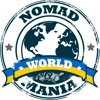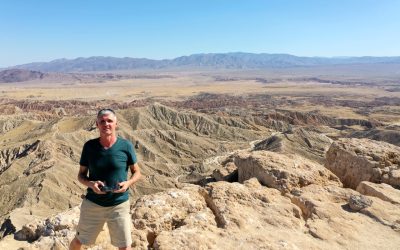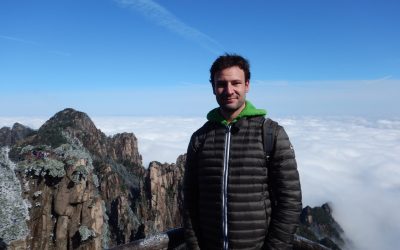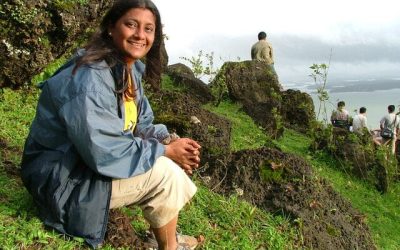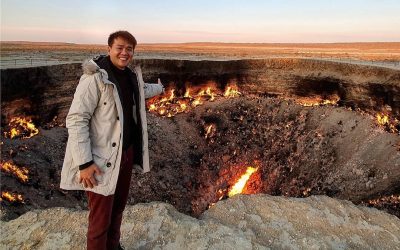Gianni Vernetti from Italy has been travelling for more than four decades. From a backpacker to a distinguished columnist and politician, his travel style may have changed somewhat but not his thirst for understanding and exploring the planet. We are extremely happy to be hosting him today!
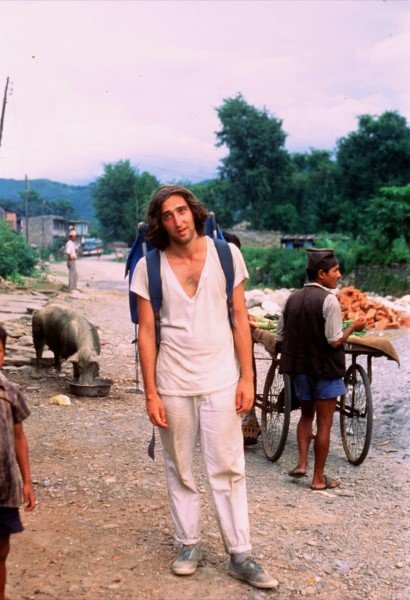
Gianni, please tell us something about your early days and your first trips.
In 1978, when I was 17, I made my first overland trip through Europe: I hitchhiked from my hometown Torino in the north of Italy to Brindisi in Puglia, then I took a boat to Patras and then I begun to island hopping in several Cyclades islands.
I was on a very low budget, travelling with just a sleeping bag.
When I reached Samos, I realise that it was possible to cross the strait and easily reaching Turkey! Asia was in my mind since I was very young.
When I was a boy I read all Emilio Salgari’s novels on the Far East. Emilio Salgari never travelled outside Italy, but thanks to his ability and hard research he wrote some of the most interesting travel novels of the XIX century.
During my teenage time I was fascinated by all decolonisation process in Africa and Asia and the birth of new independent counties following the departure of european rulers. I vividly remember as well the end of the Vietnam war in 1975.
I was captured as well by the “Hippy Trail”, when thousands of young europeans took the road to India and Nepal overlanding by bus, car or hitchhiking.
Going back to Samos, that morning I realised that Asia was in front of me. Without hesitation I bought a ticket and crossed the small strait that divided Europe and Asia.
I reached Istanbul by bus and spent there two weeks, spending most of my time at the Pudding Shop a small restaurant in the heart of Sulthanamet.
The Pudding Shop was an exceptional place: the beating heart of the “Hippy Trail”, where, in a single afternoon, it was possible to chat with dozens of travellers on their way to Tabriz, Teheran, Kabul, Delhi and Katmandu and read the famous board full of paper messages, essential to communicate during that time, before the internet era.
I quickly filled up 2 block-notes with many travel projects on how to reach Nepal from Europe. At that time I had no guidebook but I got enough information on itinerary, roads, places to stay, “hidden secrets” and hundreds of exceptional places to visit.
My next big trip took form during those days. The final decision was taken: next year, after my graduation from high school, I would have overlanded without hesitation from Europe to India and Nepal!
With this big program in my mind and tons of first hand infos in my pocket, I bought a train ticket from Istanbul to Belgrade and Milano, and come back home.
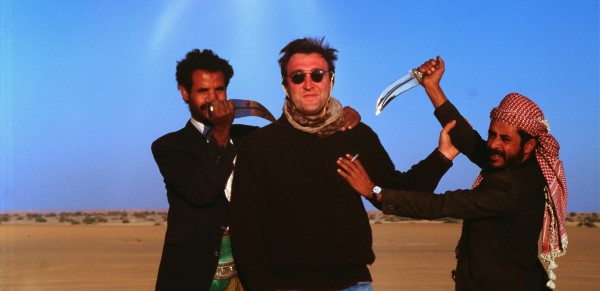
How did your travelling “career” really begin? Did you always have the travel bug?
My travelling “career” then begun with a big disappointment.
Following my first trip to Turkey before described, all my big plans for a long Asian trip after high school graduation, quickly vanished. We were in 1979 and that year two events dramatically changed Asia: the Khomeini’s revolution in Iran and the Soviet Union’s invasion of Afghanistan.
I was too late. The new regime in Iran and the Soviet occupation of Afghanistan radically transformed both countries, making a safe overland trip impossible.
Chicken Street in Kabul, that was high in my list of places collected during my afternoon at the Pudding Shop, and once Kabul’s main traveller hub, became one of the most dangerous places in all the city and probably in all Asia.
The “hippy trail” died forever, and so the overland trip from Europe to Asia.
My big overland Asia trip was cancelled, but not my “wanderlust”.
That summer I moved down to Africa hitchhiking all around the Mediterranean though France, Spain, Morocco, Algeria, Tunisia and back to Italy through Sicily.
Shortly after, even that road would have been closed.
Political tension between Morocco and Algeria on Western Sahara and Algeria civil war in early 90s, led to the closure of their border in the last 35 years.
The world as we have known since II World War, almost “blocked” during the Cold War and in many ways easy to roam around, was again on the move in unpredictable directions, affecting seriously the way of travelling.
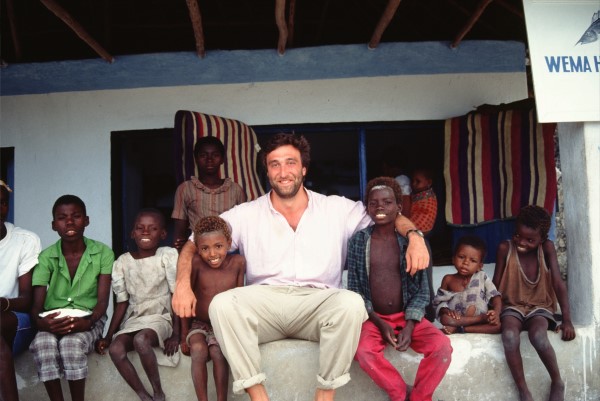
You are a former Senator and Undersecretary for Foreign Affairs of Italy, but also a columnist and a business owner in the environmental sector. Was your travelling “career” influenced by your other careers, or vice versa?
Definitively yes.
Almost every year during my University studies and then during my PhD course, I travelled every summer at least for three continuous months.
Then I began to learn foreign languages on a continuous bases (today I’m studying Russian) and all my cultural, professional and political interests were more and more focused on international issues.
It is difficult to say if first came the “egg” or the “chicken”, but my strong passion for travel and my strong interest in geo-politics were both influencing each others during the time.
Following the events of 1979, in my 20s and 30s I travelled all around Asia deepening cultural, anthropological and political aspects of different countries.
Also thanks to my early and continuous travelling, I consolidated my expertise in international relations acquiring skills and capability that help me to better understand the world around me, conflicts, political and governmental relations.
When I was 40 y/o I was elected for the first time in the Italian Parliament and I already knew what would have been my focus: international affairs. So I did.
I was a member of the Foreign Affairs Committe of the House and of the Senate and then I became Undersecretary of Foreign Affairs of Italy holding the responsibility of all bilateral relations between Italy and seventy Middle East and Asian countries. I also represented my country in different international organisation, among the others the Human Rights Council of the United Nations.
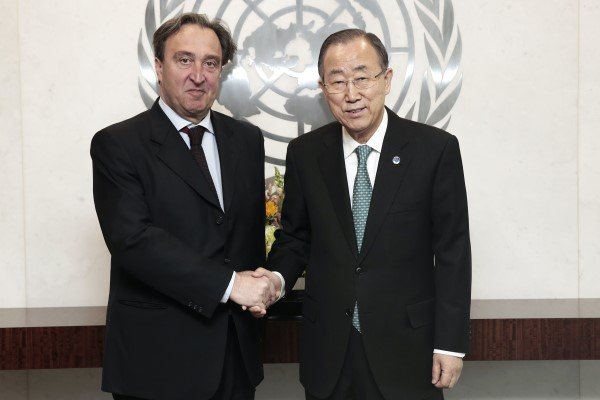
On your NomadMania profile, you are only 19 UN countries away from visiting them all. Is this a goal of yours and when do you expect to achieve it?
Yes, for sure. But I’m not only interested in the 193 countries member of the UN. I’m very much fascinated about geo-political facts and about the original ways people, minorities, indigenous nations organise try to organise themselves.
This is the reason why I visited quite extensively some self-proclaimed countries like Somaliland or Nagorno-Karabakh or the less known autonomous Republic within the Russian Federation, like Tuva, Yacutia, Buriatia, etc..
I’m very much interested as well on the stories of “dissidents” in dictatorship countries and in all the experiences of “government in exile”. This is the reason why I’ve been several times in Dharamsala in India, meeting with his Holiness the Dalai Lama, the Tibetan parliament and the Tibetan Government in Exile, actively supporting them in their fight for freedom.
Taiwan is not a UN member countries, but is one of the most interesting Asian country with rich Chinese cultural heritage combined with healthy democratic institutions, that both lacks substantially in the People Republic of China.
The Kanaks people of New Caledonia deserves and independent country as well.
I’m fascinated by the struggle for freedom and human rights of people around the world.
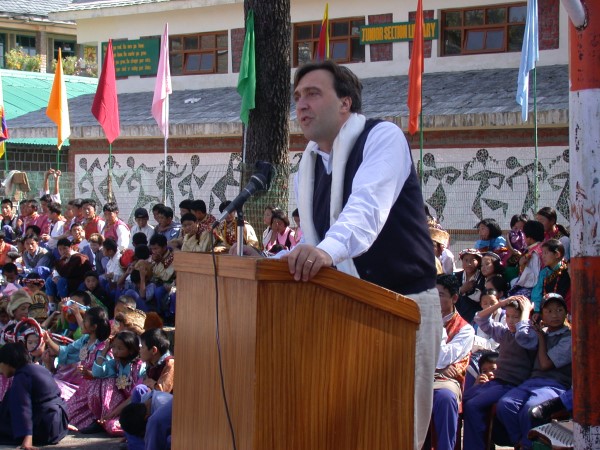
Did your political career bring you benefits, or disadvantages for that matter, with your travels?
Yes and No. As said before, my political career was influenced since the very beginning by my travel experiences. My young wanderlust led me to be an expert in international affairs and at least strongly influenced all my choices in the following years.
On the other side, during all the time that I hold political and diplomatic responsibilities, it was almost impossible for me to travel in many places around the world for security reasons.
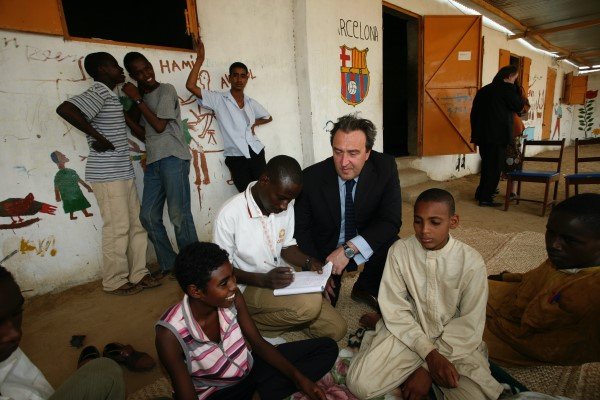
Your professional career always included some way of environmental awareness and fight for it. Did this influence your travels too and in what way?
Yes, sure. Since 2013 I decided not to run again for the Italian Parliament and founded Gea Solar (www.gea.solar), an international company that develops large scale Solar energy projects in different emerging economies. Together with Italy and Spain, we are currently developing solar projects in Mali, Ghana, the Democratic Republic of Congo, Kenya, Mexico and Argentina.
I’m strongly convinced that we need a strong public/private partnership to be able to reach the ambitious goals set by the United Nations to dramatically reduce CO2 emission for addressing the climate change threats.
We chose to operate even in challenging countries, like Mali or the Democratic Republic of Congo, often avoided by many western companies, because I’m really convinced that renewable energies can be one of the most important components of human development: they are easy to install, competitive with fossil fuels, decentralised and naturally clean.
So, I’m continuing to travel worldwide not only with family and for pleasure but for developing these projects as well.
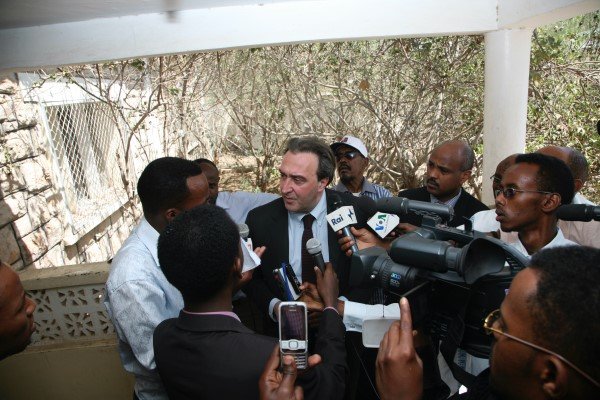
Could you share some travel stories with us, the ones that stay deep in your head and heart?
On 9th November 1989 I was working on the final draft of my PhD dissertation.
During those days, there were several indicators that Eastern Europe was quickly changing. By the end of October, thousands of East German tourists in Hungary were able to cross the “iron curtain” in Austria, arriving freely in West Germany.
That day at 8pm, I switch-on my TV to hear the evening news and suddenly I watched incredible images of people crying and dancing on both side of the Berlin Wall, crossing peacefully the Check Point Charlie to West Berlin.
The Cold War has finally ended. One hour before during a press conference in Berlin, the spokeperson of the East German Politburo had just announced that all citizens of East Berlin were allowed to cross the Wall.
One hour later I was with an old friend of mine on an old Volvo Polar and two sleeping bags. We drove all night the 1.300km that divided my city from Berlin and the following days, around 12pm, we witnessed the first removal of the Berlin Wall in Alexander Platz.
We then spent some days in Berlin feeling that extraordinary and incredible moment when the iron curtain disappeared and the people of Europe were finally able to reunite.
The stamp of the last day of existence of the DDR (the East German Republic) stands proudly on my passport!
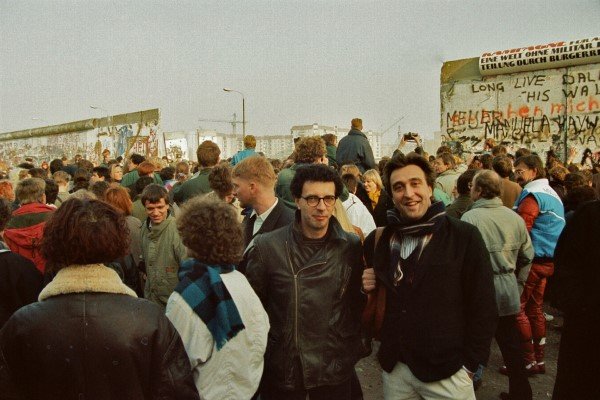
In July 2006 I was in Kabul on an official visit to Afghanistan. I met our soldiers of the Nato mission, the President Hamid Karzai and several officials of the government. But the fact that touched me most was to enter the Kabul library meeting the extraordinary men that saved thousands of books forbidden during the Taliban’s rule. Now sadly that dark regime has come back and the future of that incredible country is more uncertain than ever.
In 1985 I was together with my girlfriend Laura (today my wife) on a very long overland trip within China: that was the very first year that China issued in Hong Kong individual traveller visas and we spent three months roaming around by boat, bus and train travelling more then 12.000km within the country.
China was incredibly different from now: just bicycles everywhere, no cars and no english speakers. We had to learn a little chinese to survive and with train station signs only written in Chinese a small book bought in Hong Kong “saved our lives” many times: a Chinese Railways Timetable written in English and Chinese allowed us to understand when we had arrived in our destination in remote areas.
We had as well many incredible travelling experiences with our 4 kids, Pietro, Mosè, Sibilla and Lorenzo: when they we 6, 4, 2 and 1 y/o we spent one month driving 4.000km in Namibia and our youngest child Lorenzo had his first birthday below the shade of the Sossusvlei dunes.
A couple of years ago we were again all together (now they are 25, 23, 21 and 20 y/o) and we took the Transiberian train from Moscow to Vladivostock stepping down in several remote locations: we especially loved Aginskoye in the Agyn-Buriat Autonomous Okrug within Transbaikalia and Birobidzhan in the Jewish Autonomous Oblast, both with incredible stories of unique preserved cultural heritage.
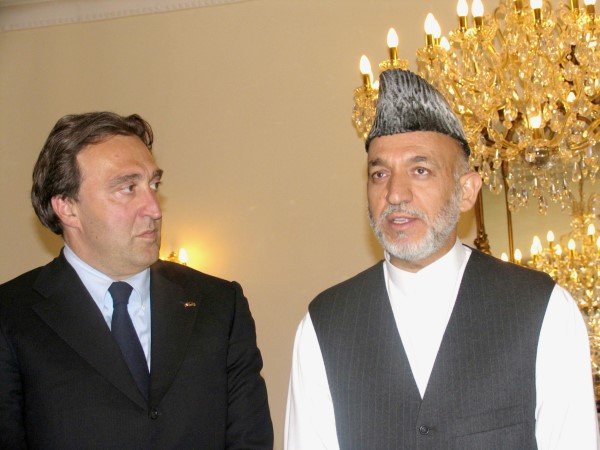
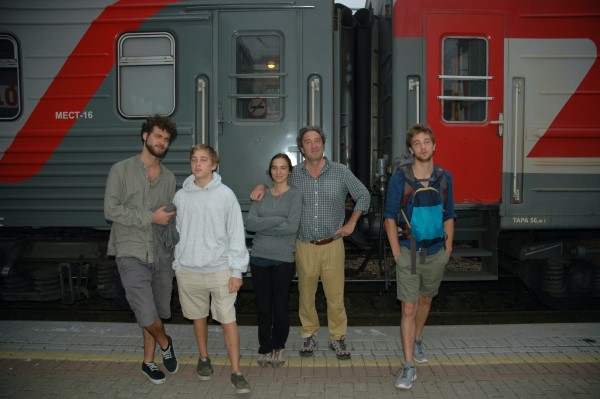
What is your most preferred style of travel?
Overland. By train, bus, car, motorbike. I like to slowly arrive in one place appreciating all the changes along the way. Naturally it isn’t always possible and planes are in many cases unavoidable, but I always try to feel “the dust under my feet”.
We have an old Land Rover Defender essentially devoted to this, but the problem now is that there is a continuous “family battle” to book it!
We have four children that now became four young adults. They naturally love to travel and me and my wife Laura are quite proud to have transmitted them some right principles: to love differences, to be able to adapt, to run out from their comfort zone, to explore the outside world, to not follow the “mainstream” and to try to find out as much as possible their original ways to live.
They took all this very seriously and they are now better than us in many ways. They all left home very young, they went to study at Universities abroad, they became four very serious travellers. A couple of years ago one of my sons, when he was 19 y/o, drove with 3 friends from our city Torino to Banjul in Gambia crossing Morocco, Western Sahara, Mauritania and Senegal.
They all travelled around Europe by bus and train since the were 16 and now they have already independently travelled around most continents by their own.
Already for many years we have a very important “family file” with all countries and territories visited by each member of us. I may say that there is as well an healthy competition among us… Discovering the NomadMania website was a confirmation that we are not alone in this positive madness…
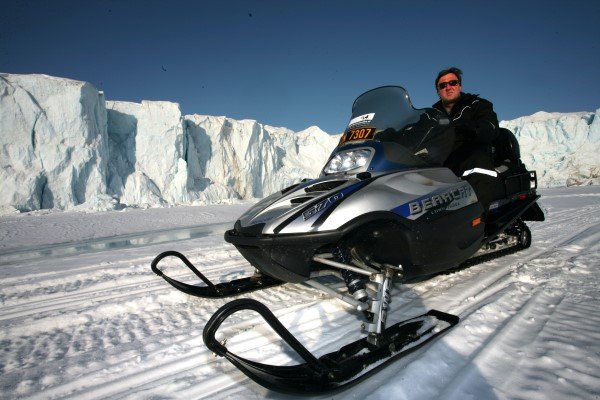
When you travel, what are your biggest interests? You seem to be pretty invested in our NomadMania Series, so do you have some favourites amongst them, perhaps?
Since I was very young I collected maps and spent hours studying itineraries, borders, analysing geo-political limitations and opportunities, localising interesting places to go, planning dozen trips.
Drawing itineraries on maps is still one of my favourite activities!
The highlights that I put on the map are very eclectic: sometimes could be a World Heritage Site, in other cases a village, a city or a natural place that we discovered reading fiction and non fiction books, or simply something that we are still missing.
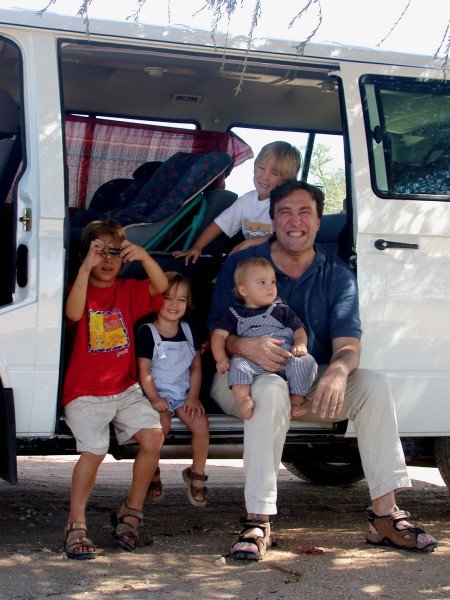
We have one question that we ask all of our guests, our signature question: if you could invite 4 people from any era to dinner, who would your guests be and why?
Robert Louis Stevenson, a great writer that died too young. Treasure Island and the maps of Treasure Island has been a recurrent reading since my childhood: I read everything he wrote, including the story of his family of Scottish lighthouses builder. A trek to the mountain of Vaea in Samoa, to pay homage to his graveyard, is on top of the list of my next travels.
Woodrow Wilson, the 28th President of the United States of America. Following World War I, he envisioned and promoted the birth of the League of Nations and the Permanent Court of International Justice. He was a true liberal internationalist advocating democracy promotion and the protection of human rights worldwide.
All international institutions that we have nowadays, came out of his vision.
George Orwell, a great journalist, unique novelist and finally a freedom fighter. His dystopian novel “Animal Farm” and “1984” are a constant warning about the risks of totalitarianism and help me to love the freedoms our generations have won even more. His first hand account of the Spanish civil war, “Homage of Catalonia”, is probably the best war reportage ever written.
And finally an Italian: Altiero Spinelli, one of the founding fathers of the European Union. He drafted the famous “Manifesto of Ventotene” during the time he was imprisoned in the tiny Italian island of Ventotene by the fascist regime. His vision of a federalist and united Europe, written in 1941 during the darkest time of our continent, continues to be a strong inspiration for the generation to come.
